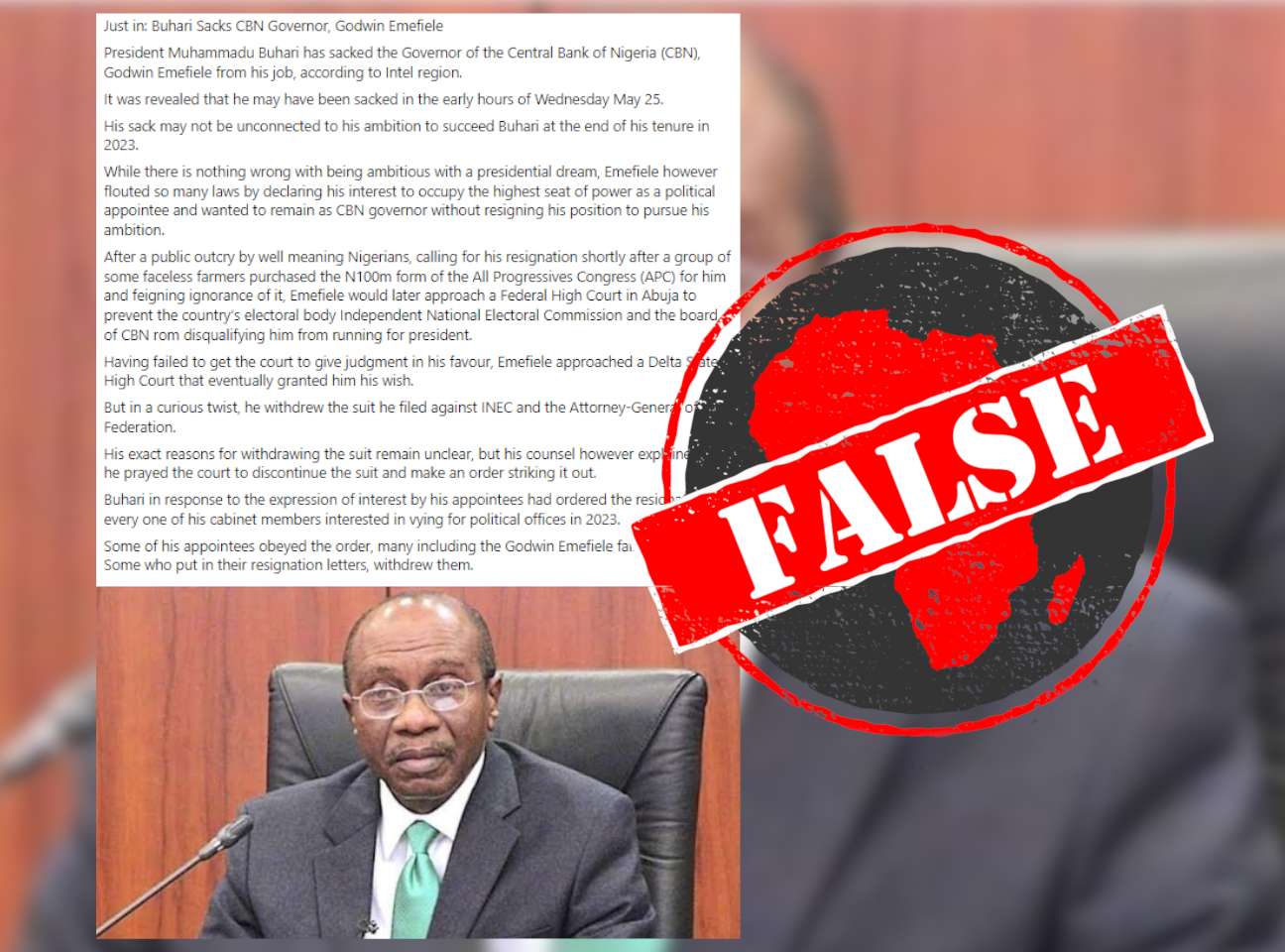“President Muhammadu Buhari has sacked the Governor of the Central Bank of Nigeria (CBN), Godwin Emefiele from his job, according to Intel region,” reads a message going viral on social media in late May 2022.
“It was revealed that he may have been sacked in the early hours of Wednesday May 25. His sack may not be unconnected to his ambition to succeed Buhari at the end of his tenure in 2023.”
The message started circulating after controversy erupted over Emefiele’s ambition to run for president in Nigeria’s 2023 general elections.
There have been several calls for Emefiele to either resign or be sacked since it was confirmed that he, a member of Nigeria’s ruling All Progressives Congress, was seeking the party’s nomination as its presidential candidate.
Emefiele has obtained a court order restraining the central bank’s board and the Independent Electoral Commission from stopping his bid to run for president while keeping his position as central bank governor.
But has Buhari really sacked Emefiele?

No evidence backs claim
The first sign that the claim is false is there has been no official statement by either the presidency or the central bank.
Such a development would normally be announced by the president or a presidential spokesperson and would be reported by mainstream media. This has not been the case.
By contrast, when previous central bank governor Lamido Sanusi was removed in 2014, it was widely reported by Nigerian and international media.
‘This is false’ – central bank official
On 25 May the Nation, a national newspaper, quoted central bank spokesperson Osita Nwanisobi as saying he wasn’t aware Emefiele had been sacked.
“I also heard the same way you heard it. Honestly, to me, I’m not aware of that development,” Nwanisobi told the Nation.
And a central bank official who works in the governor’s office told Africa Check the claim was false.
Republish our content for free
For publishers: what to do if your post is rated false
A fact-checker has rated your Facebook or Instagram post as “false”, “altered”, “partly false” or “missing context”. This could have serious consequences. What do you do?
Click on our guide for the steps you should follow.
Publishers guideAfrica Check teams up with Facebook
Africa Check is a partner in Meta's third-party fact-checking programme to help stop the spread of false information on social media.
The content we rate as “false” will be downgraded on Facebook and Instagram. This means fewer people will see it.
You can also help identify false information on Facebook. This guide explains how.


Add new comment